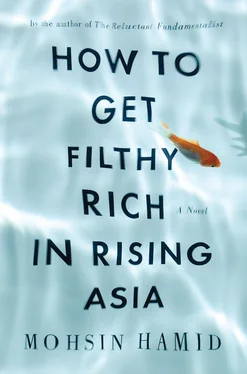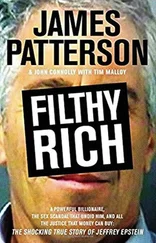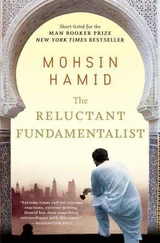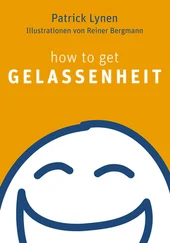You drive off in a state of agitation, both happy and afraid. But it is the fear that has grown dominant by that weekend, when you take your nephews to the zoo. They long for their monthly outing with their prosperous uncle, for their ride in your truck and the sweets you give them, and on this occasion your longing for their company has been particularly intense as well. Your throat is thick when you collect them, and so you speak little, allowing them to chat among themselves. But in the presence of caged bears and tigers you relax, and you are able to talk normally when it comes time for their camel ride.
Your brother accepts their return with a handshake, and also, wordlessly, the rolled banknotes hidden in your grip. It shamed him initially to receive help from his younger sibling, but not so much anymore, and he no longer insists on telling you over and over the stories of his difficulties as a father in the face of runaway prices, even though those stories remain pressing and true.
Instead he sits you down on his rooftop and asks you about yourself, lighting a joint and sucking a series of shallow puffs into his scrawny chest. The evening sky is orange, heavy with suspended dust from thousands upon thousands of construction sites, fertile soil gouged by shovels, dried by the sun, and scattered by the wind. As usual your brother encourages you to wed, expressing by doing so an abiding generosity, for a family of your own would, in all likelihood, diminish your ability to contribute to the well-being of his.
“My business fills my time,” you say. “I’m fine alone.”
“No person is fine alone.”
Your discussion turns to your sister, whom he has seen on a recent trip to the village and describes as getting old, which does not shock you, though she is only a few years your senior. You are well aware of the toll a rural life exacts on a body. He says she complains often but fortunately her husband is terrified of her, and so her situation is not so bad. She could use some bricks, however, as the mud stacked around her courtyard keeps washing away. You say you will take care of it.
Weeks pass and the pretty girl does not call. You are surprised and unsurprised, unsurprised because this was surely predictable, and surprised because you permitted yourself to hope it might be otherwise. You have learned by now that she will call eventually, but you give up on guessing when that might be.
During this period you come to an important decision. You have amassed some savings, savings you intended to use to buy a resident’s bond on your property, not outright title, of course, that being far too expensive, but rather the right to live rent-free in your rooms for a set number of years, after which your landlord must repay your principal. Such an arrangement is a great aspiration for those of modest means, offering as it does security akin to home ownership, temporarily, for the duration of the bond.
In the world of cooks and delivery boys and minor salesmen, the world to which you have belonged, a resident’s bond is a rest stop on the incessant treadmill of life. Yet you are now a man who works for himself, an entrepreneur, and one smoky afternoon, as you pass along a road on the outskirts of town, a small plot for let catches your eye, the rump of what was once a larger farm, currently no more than a crumbling shed and a rusty but upon closer examination still functional tube well, and it occurs to you that with the money you have saved, you could instead relocate here and expand your bottled-water operation. Such a course would be risky, leaving you with no savings and no guarantee, should your business fail, of a roof over your head. But risk brings with it the potential for return, and, besides, you have begun to recognize your dream of a home of your own for what it is, an illusion, unless financed in full by cold, hard cash.
The night after you sign the lease, you lie by yourself on the cot that once slept your parents, waiting for exhaustion to push you beyond consciousness. Beside you is your unringing phone. You watch one after another of the ubiquitous, hyper-argumentative talk shows that fill your television, aware that in their fury they make politics a game, diverting public attention rather than focusing it. But that suits you perfectly. Diversion is, after all, what you seek.
SEVEN
BE PREPARED TO USE VIOLENCE

DISTASTEFUL THOUGH IT MAY BE, IT WAS INEVITABLE, in a self-help book such as this, that we would eventually find ourselves broaching the topic of violence. Becoming filthy rich requires a degree of unsqueamishness, whether in rising Asia or anywhere else. For wealth comes from capital, and capital comes from labor, and labor comes from equilibrium, from calories in chasing calories out, an inherent, in-built leanness, the leanness of biological machines that must be bent to your will with some force if you are to loosen your own financial belt and, sighingly, expand.
At this moment, smoke and tear gas coil in the air above a commercial boulevard. A vinegar-soaked scarf hangs at your neck as you drive, ready to serve as a makeshift filter against the fumes. The riot is not ongoing, but neither is it entirely over, with packs of police out hunting stragglers. Around you broken glass and bits of rubble rest like five o’clock shadow on the city’s smooth concrete.
The building at the address you seek has been hit with petrol bombs, its whitewashed colonial facade blackened by smoke. The structure and its interior are by and large fine. But this is not what concerns you as you dismount. What concerns you is the delivery truck in the service lane in front, lying on its side, its engine and undercarriage smoldering. A total loss. There is no need to bother with the extinguisher you have brought, and, after a lingering glance, you wave your mechanic back into your vehicle.
Your mucous membranes ooze on the slow return journey. You roll down your window, hawk deeply, and spit. Your office is adjacent to your factory and storage depot, in the city’s outskirts, on one of a thousand and one rutted streets where a few years ago were only fields but now little green can be seen, unplanned development having yielded instead a ribbon of convenience stores, auto garages, scrap-metal dealers, unregistered educational institutes, fly-by-night dental clinics, and mobile-phone top-up and repair points, all fronting warrens of housing perilously unresistant to earthquakes, or even, for that matter, torrential rain.
Here along its spreading rim live many of the recent additions to your city’s vast population, some of them born centrally and pressed out by the urban crush, others tossed up from regional towns and villages to seek their fortune, and still others arrived as castaways, fleeing homelands to which in all likelihood they will never return. Here, as well, resides the physical hub of your enterprise. You have thrived to the sound of the city’s great whooshing thirst, unsated and growing, water incessantly being pulled out of the ground and pushed into pipes and containers. Bottled hydration has proved lucrative.
Your office, although structurally no different from its narrow, two-story neighbors, is distinguished by its gold-tinted reflective windows, selected by you and striking, to say the least. Stepping into your building, you feel an entrepreneur’s pride at observing your people hard at work, hunched over their desks or, as you pass into the corrugated shed out back, over machinery humming in good repair. You built this. But today your pride is mixed with apprehension, reeling as you are from the destruction of the newest addition to your transportation fleet.
Читать дальше













